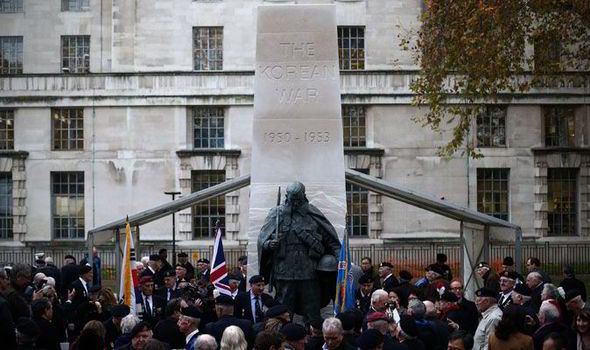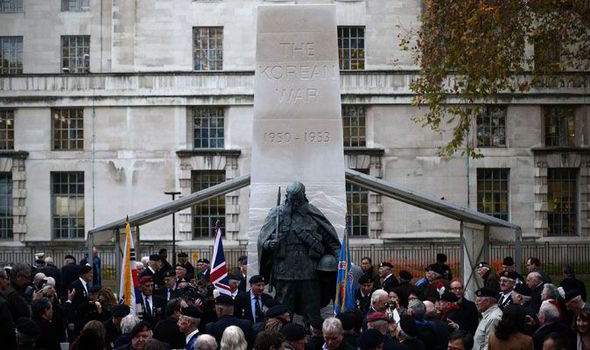As veterans from both World Wars dwindle in number, so too are those who took part in the Korean War of 1950-53. Therefore, to ensure that British involvement in the Cold War battlefield is honoured and remembered, a permanent bronze statue of a British serviceman has been erected outside the Ministry of Defence in London’s Whitehall.
Behind the statue, a memorial pylon made of stone from Dorset and slate from Wales has been built as a gift from the people of the Republic of Korea (South Korea).
The Korean War occurred only five years after the end of World War Two, when communism in the East and democracy and capitalismin the West were pitted against each other at the beginning of the 44 year Cold War. The war was sparked when communist North Korea, backed by the USSR and China, invaded South Korea, which was backed and supported by the US.
The number of surviving veterans is sadly becoming fewer and fewer as the years go on and the British Korean Veterans Association is, this year, disbanding. The memorialhas been built at an ideal time, ensuring that those who gave their lives and the survivors are never forgotten. More than 300 veterans and 200 officials and guests attended the unveiling of the memorial, led by the Duke of Gloucester.
81,084 British servicemen and women served in the Korean War, alongside an allied force made up of 21 UN-member countries. It was the first war to be sanctioned by the United Nations since it was established in 1945, directly after World War Two to manage international relations and help to prevent another world war, the Express reports.
There is no doubt that given its proximity to the end of World War Two, the allied forces were diminished and weary, however it is to the credit of the thousands of soldiers that took part that South Korea remains a democratic, flourishing country to this day.
1106 British servicemen were killed in the ruthless and violent conflict, where fighting often took place in remote mountainous regions and in extreme weather conditions. Just over 1000 were taken prisoners of war, and thousands more were wounded.
Michael Fallon, the British Defence Secretary attended the event and said: “The Korean War was the first ever UN action against aggression, and so has enormous international significance.”
“We will never forget the sacrifices made by our soldiers – losing their lives, sustaining injuries or becoming prisoners of war.”
The majority of British soldiers who lost their lives are buried in Busan, South Korea at the UN Memorial Cemetery.
British relations with the Republic of Korea extend back more than 130 years and the memorial has cemented that connection.

